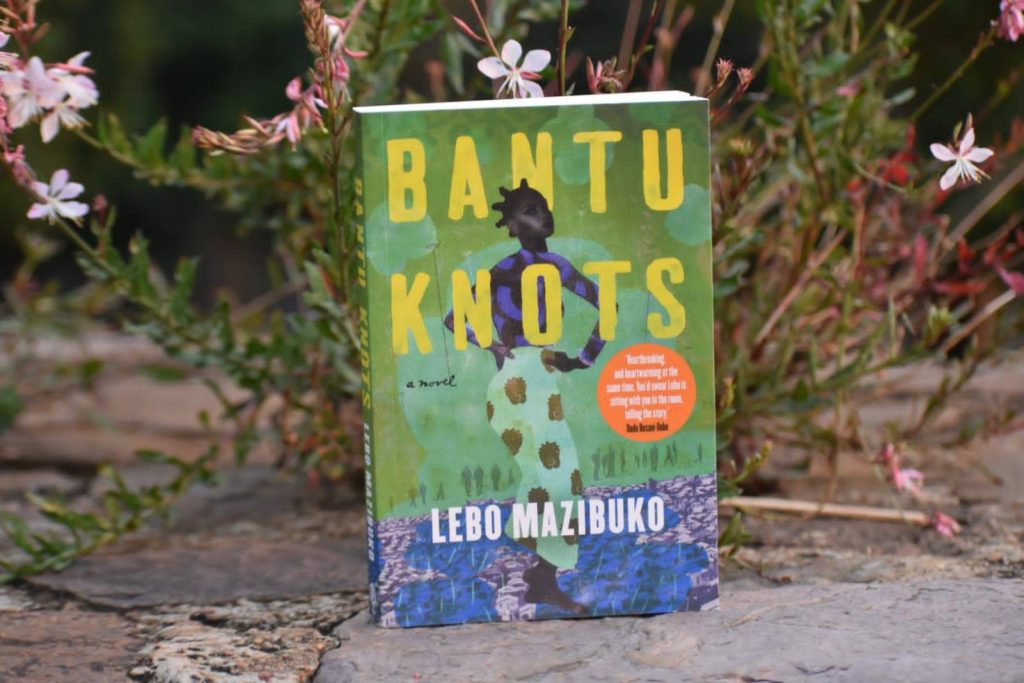
I think it will be honest of me to admit that upon receiving a copy of this book, I thought that I would be reading about one of the original African hairstyles, bantu knots.
However, what is inside the pages of this novel is more than just hair, but a breathtakingly tale about identity and womanhood.
Lebo Mazibuko has definitely announced herself in the South African literary space with a bang with this cracking debut novel. And I believe that she is one to watch for the future.
In Bantu Knots, we journey into a life of a young lady named Naledi who has to navigate her strict grandmother, absent father and mother, and the sexual predators in her neighborhood to not only reach her dreams but to discover herself as a Black woman.
Beauty ideals, complicated mother-daughter relations, identity crisis, apartheid spatial planning, racism, gender-based violence, sexual abuse, objectification of women are some of the themes that forms part of the narrative.
It is in Naledi’s life journey, where I felt like Lebo is telling us a story that many of us fully know well, because it is a story that has been part of our lives growing up.
Even though Naledi is a female character, however, as a male reader, I was transported back to my early life where I could easily draw similarities with how Naledi’s dark skin colour just like mine became a sort of my identity in my community growing up, where I was called by my skin colour than my name.
And this speaks to how the Black community continue to treat those with dark skin tones, and how beauty is never associated with that kind of skin.
This is a book that will open so many conversations in the Black community, how to deal with the complexities of child-parent relationship, beauty ideals, sex, African hair, and religion among many others.
Bantu Knots is a cracking novel with an authentic story and relatable characters.
I must say that Mme Norah truly evoked mixed emotions in me. She perfectly illustrated why religion continue to suffocate so many women to be who they want to be. Also, her unwillingness to forgive her daughter Dineo is a true reflections of how some religious people are able to read and pray about forgiveness, but they cannot put that into practice in their own homes.
This book is unputdownable and Lebo has given us our real story, without filtering or adding anything that is foreign to our ways of living.
Also, as a reader, you cannot help but hate all the male characters in the book. And you cannot even blame nor hate the scribe for portraying men for who we normally are- rapists, deadbeat fathers, misogynistic pigs and overall trashes.
The chapters are short, the pace is incredibly fast, and the use multiple African language just makes this story an authentic township one.
I strongly believe a sequel is something to be wished for.

